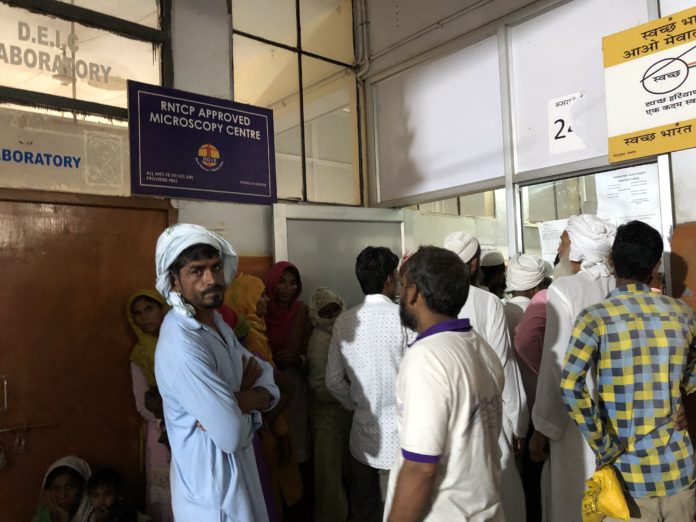Health ministers from the WHO South East Asia region will meet in New Delhi over the week to discuss priority health issues
Health Ministers and experts from Member countries of WHO South-East Asia Region began a week-long meeting in New Delhi today to deliberate on priority public health issues. They will also talk about how to further build on the momentum of disease eliminations and progress achieved in recent years.
Inaugurating the Seventy-Second Session of the WHO Regional Committee of South-East Asia, India’s Minster of Health and Family Welfare, Dr Harsh Vardhan, called for a ‘mission mode approach’ for creating public health success stories from the Region. “I look forward to strong and continued collaboration with all respected Member States as we move forward on attaining Sustainable Development Goals through universal health coverage.”
The Regional Committee of South-East Asia is the highest decision making and governing body meeting of WHO in the Region. The meeting will deliberate, among other issues, cervical cancer, strengthening of emergency preparedness capacities, eliminating measles and addressing the high burden of TB.
WHO South-East Asia Region has been prioritising measles elimination and rubella control; preventing non-communicable diseases; reducing maternal, under-five and neonatal mortality; universal health coverage with a focus on human resources for health and essential medicines; combating antimicrobial resistance;
“The Regional Committee session provides a unique opportunity to identify innovative solutions to the common problems that countries in this diverse Region face,” Nepal’s Deputy Prime Minister and Health Minister, Mr Upendra Yadav. said.
In his message, WHO Director General, Dr Tedros Adhanom Ghebreyesus, said, “it is heartening to see the Region’s long list of achievements in the past five years…We hope to see this momentum build further and contribute to WHO’s global triple billion goals.”
The Regional Director, Dr Poonam Khetrapal Singh, said,” the Regional Committee is a time to take stock, to review progress, to discuss and update policies and technical strategies. We need to look beyond our day-to-day concerns and the immediate horizon, to identify emerging challenges and trends and seek new opportunities to take forward our joint agenda.”
Home to over one-fourth of the global population, WHO South-East Asia Region has been prioritising measles elimination and rubella control; preventing non-communicable diseases; reducing maternal, under-five and neonatal mortality; universal health coverage with a focus on human resources for health and essential medicines; combating antimicrobial resistance; scaling up capacities for emergency risk management; eliminating neglected tropical diseases and accelerating efforts to end TB.
These priorities were identified by Dr Khetrapal Singh, in collaboration with Member countries, as flagship programmes at the start of her tenure as Regional Director in 2014. In her second five-year term as Regional Director, Dr Khetrapal Singh, has called for efforts to sustain these progress, accelerate efforts and innovate to meet the health goals and targets.
Following concerted efforts, the Region eradicated polio in 2014. In 2016 the Region became the second WHO region to eliminate maternal and neonatal tetanus. Two countries – Maldives and Sri Lanka – have eliminated malaria. Thailand and Maldives have eliminated mother-to-child transmission of HIV and syphilis.
Bhutan, Maldives, DPR Korea, Timor-Leste and Sri Lanka have eliminated measles. Bangladesh, Bhutan, Maldives, Nepal, Sri Lanka and Timor-Leste have controlled rubella. Maldives, Sri Lanka and Thailand have eliminated lymphatic filariasis. India is yaws-free; Nepal has eliminated trachoma. Bangladesh, Bhutan, Nepal and Thailand have controlled Hepatitis B.
Between 1990 and 2015 the maternal mortality ratio in the Region declined by 69%, under-five mortality by 70%. DPR Korea, Indonesia, Maldives, Sri Lanka and Thailand have already achieved global Sustainable Development Goal (SDG) targets for neonatal and under-5 mortality. Maldives, Sri Lanka and Thailand have done the same for maternal mortality.


